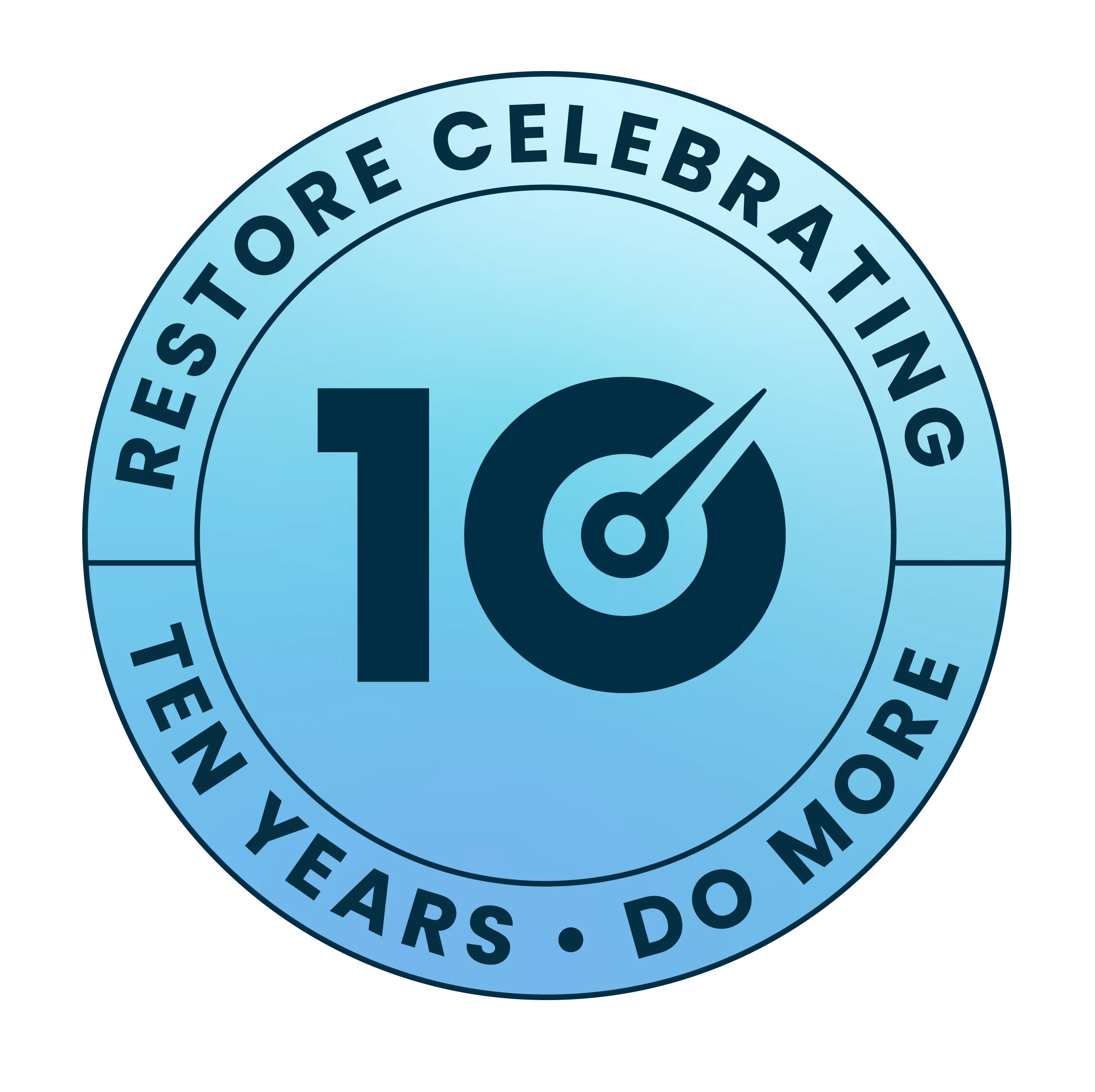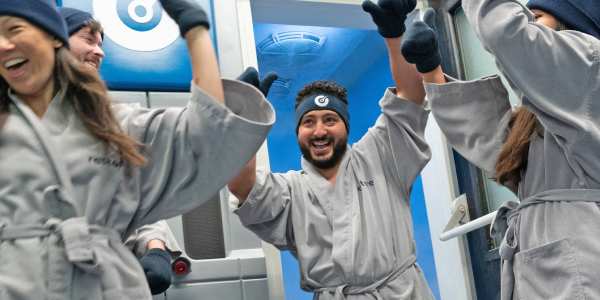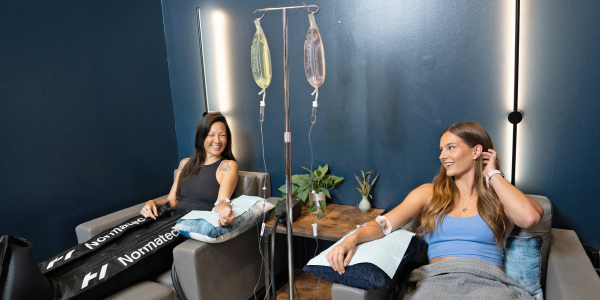What is Human Growth Hormone?
Human growth hormone (HGH) is a naturally occurring hormone produced by the pituitary gland. It plays a vital role in various functions throughout the body, including promoting growth throughout every tissue and organ, helping maintain metabolism and normal body structure, regulating blood glucose levels and even improving sleep, cognitive function and bone health.
Low levels of HGH have the potential to impact your quality of life in a variety of ways that may include sleep, anxiety and depression, weight gain, decreased energy and muscle tone, low bone density and certain conditions like Type 2 diabetes and osteoporosis.
Read on to learn about natural, science-backed ways to potentially boost your levels of HGH and help improve your overall well-being.
Potential Benefits of Boosting HGH
Whereas low levels of HGH have a negative effect on your health, naturally improving your HGH levels can provide numerous benefits, including:
Weight Loss
Because HGH stimulates lipolysis, a metabolic process that breaks down fatty acids, it has the potential to help aid in weight loss. Studies from Molecular and Cellular Endocrinology and Growth Hormone & IGF Research found HGH may play a role in helping reduce fat in those with obesity, along with providing cardiovascular benefits.
Improved Bone Health
Because HGH plays a critical role in regulating bone metabolism, a deficiency may result in reduced bone density and an increased risk of injury. According to The Journal of Clinical Endocrinology & Metabolism, HGH treatments given to postmenopausal women resulted in improved bone health and healing of fractures.
Increased Muscle Mass
While more studies are needed regarding increased strength through increased levels of HGH, it has been found to positively regulate muscular function and stimulate muscle growth.
Improved Cognitive Function
A study from Vitamins and Hormones concluded that HGH can not only alter the body’s structure, but it can also play a role in the structure of the brain and nervous system. While an HGH deficiency may result in memory issues, confusion and mood swings, the positive effects of adequate HGH levels may include better memory, behavior, mood, sensory function and overall quality of life.
Ways to Potentially Boost HGH
The pituitary gland releases HGH in pulses throughout the day and night that vary in size and duration, often regulated as a response to things like sleep, stress, exercise and nutrition. HGH levels may be naturally increased through a variety of practices.
Get Regular Exercise
Regular exercise is an important piece to overall health and wellness, but it can also play a key role in naturally boosting HGH levels. While the Physiology Report found that HGH levels greatly increased with high-intensity exercise, even regular moderate exercise has the potential to provide beneficial support of HGH levels.
Maintain a Healthy Weight
The first step to healthy HGH levels is maintaining a healthy weight. A study from Growth Hormone & IGF Research found that HGH production is directly linked to the amount of a person’s belly fat, and the International Journal of Obesity revealed that reducing body fat naturally increases the growth hormone.
Cryotherapy Can Help
Along with healthy lifestyle choices, the use of science-backed Cryotherapy treatment has been found to be effective in safely reducing abdominal fat in those with obesity, which can potentially increase the natural production of HGH.
Prioritize Quality Sleep
Given HGH is released when you sleep, it’s vitally important to maintain a regular sleep cycle so your body has time to recover and replenish the levels of HGH in the body. A study from Sleep Medicine Reviews concluded that reduced sleep resulted in reduced HGH levels, and the European Journal of Endocrinology found that increased levels of HGH resulted in improved quality of sleep.
Along with maintaining a regular sleep schedule, innovative therapies also have the potential to help improve sleep quality, and by extension, naturally increase levels of HGH. A study from the Journal of Athletic Training shared that Red Light Therapy is effective in improving overall sleep quality, while the European Journal of Sports Science found Cryotherapy can significantly improve sleep and regular sauna users have reported not just improved sleep but also higher mental well-being scores.
Reduce Your Sugar Intake
Higher insulin levels—often associated with sugary foods and refined carbs—can decrease levels of HGH in the body, and a study from Cells found that reducing the amount of sugar consumed reduces the need for insulin, resulting in greater levels of HGH throughout the body. Aim to eat a balanced diet of whole grains, lean protein, fruits and vegetables, and limit the amount of refined carbs and added sugars.
Boost HGH with IV Drip Therapy
Along with healthy lifestyle changes, intravenous (IV) Drip Therapy has the potential to safely and effectively help boost HGH levels by delivering the amino acids Arginine and Glutamine directly into the bloodstream. Nutrition found that taking Arginine led to an increase in growth hormone, with the American Journal of Therapeutics concluding that supplementation of both Arginine and Glutamine resulted in a significant increase in HGH levels.
IV Drip Therapy can provide 100% bioavailability of nutrients—compared to 15-20% bioavailability from food consumption—because the ingredients are delivered directly into your veins and bloodstream. This can help to quickly replenish nutrients that are required for healthy HGH levels and overall well-being.
Ready to Boost Human Growth Hormones Naturally?
Learn more about IV Drip Therapy, Cryotherapy, Red Light Therapy and Infrared Sauna, or book your appointments today!
Medical services are provided by an independently-owned physician practice. Some services may require medical clearance and a prescription. We reserve the right to refuse service to anyone. Services, therapies, ingredients and prices may vary per location. The content on our site, blog posts, educational materials, apps, promotional newsletters, and any other written content are not intended to replace an evaluation with a qualified healthcare professional and are not intended as medical advice.






